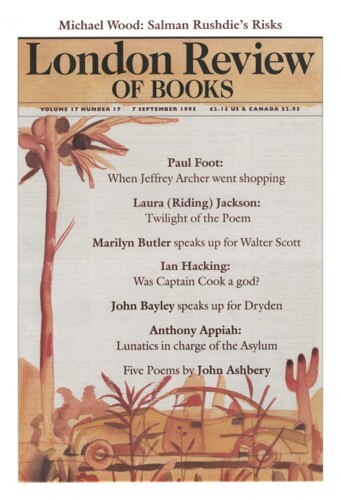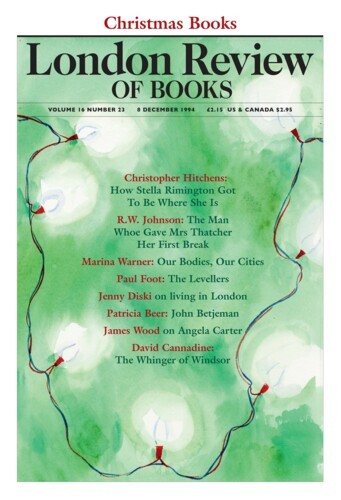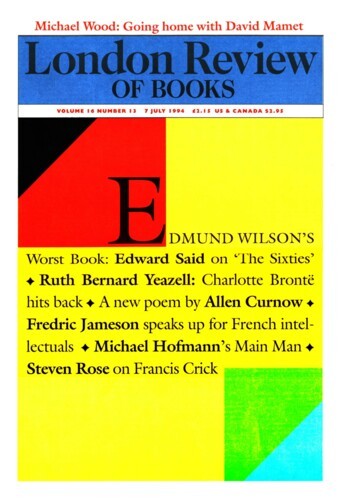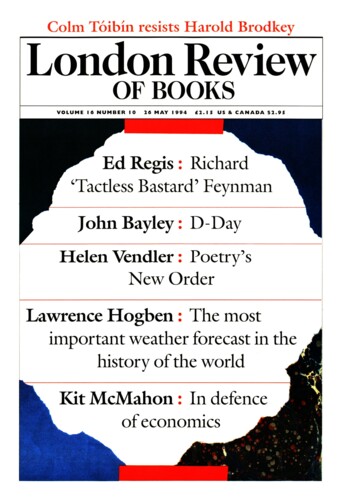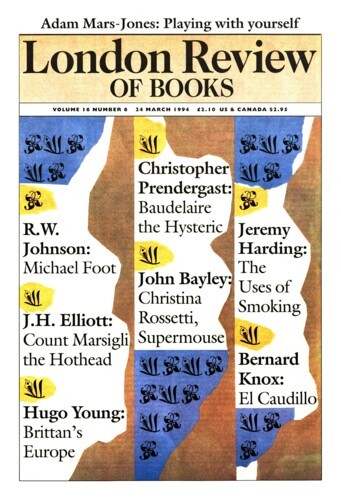Doubling the Oliphant
Ruth Bernard Yeazell, 7 September 1995
Even by the standards of her contemporaries Margaret Oliphant’s productivity was phenomenal. As the author of 98 novels, she surpassed that other prodigious maker of fictions, Anthony Trollope, by roughly two to one – and this is not to mention her 25 works of non-fiction, 50 short stories and over three hundred contributions to periodicals. Though she usually prided herself on her robust health, it is little wonder that at the age of 65 she half-boasted to her publisher of how she had ‘worked a hole’ in her right forefinger ‘with the pen, I suppose!’ and could not get it to heal – ‘also from excessive use of that little implement’. In an obituary note written after she finally succumbed to colon cancer in 1897, Henry James paid characteristically equivocal tribute to this most prolific of women writers: ‘from no individual perhaps had the great contemporary flood received a more copious treatment.’ His obituary hovered between contempt for helpless female fecundity – what he unkindly termed Oliphant’s ‘uncontrolled flood of fiction’ – and genuine awe at the sheer scale of her achievement: ‘few writers of our time have been so organised for liberal, for – one may almost put it – heroic production.’ Even as James speculated on how ‘her remarkable life, and still more … remarkable character’ might ‘lend itself to vivid portraiture’, he recognised how the very magnitude of her production would militate against the prospect of a biography. Of her criticism alone, he remarked: ‘She practised it, as she practised everything, on such an inordinate scale that her biographer, if there is to be one, will have no small task in the mere drafting of lists of her contributions.’’‘
